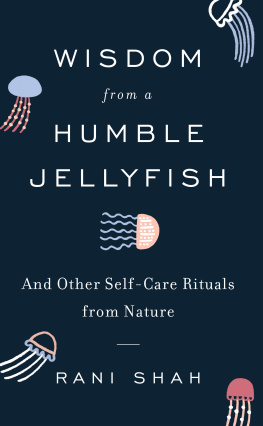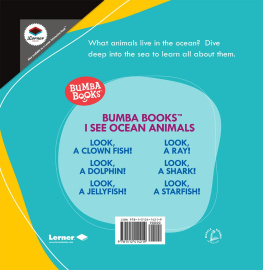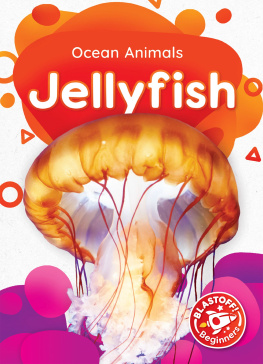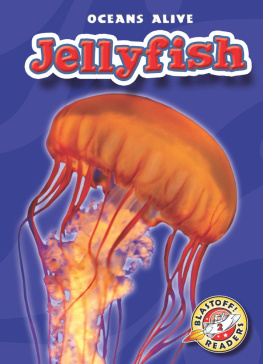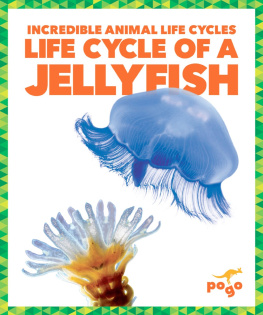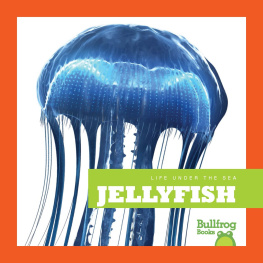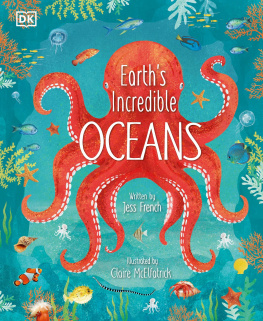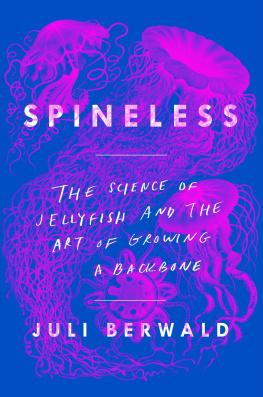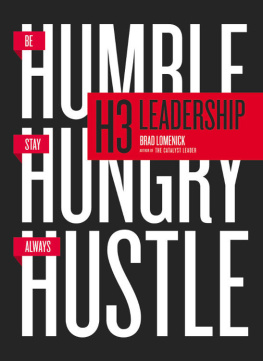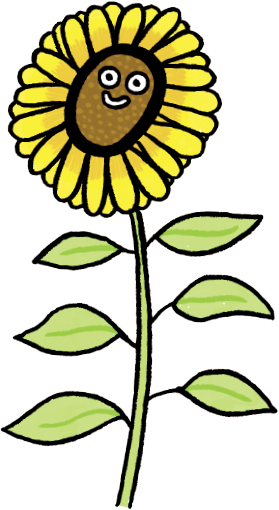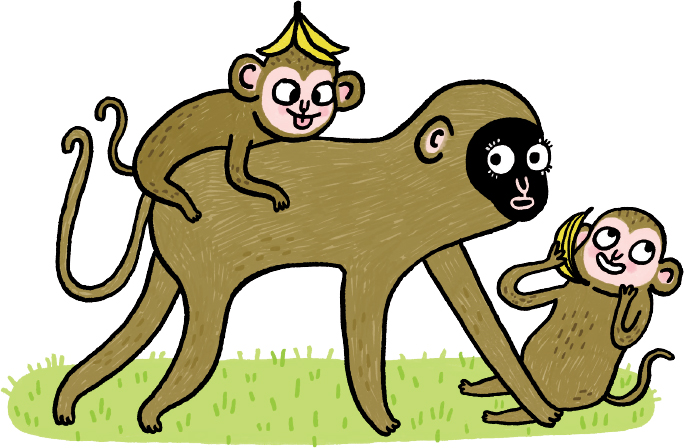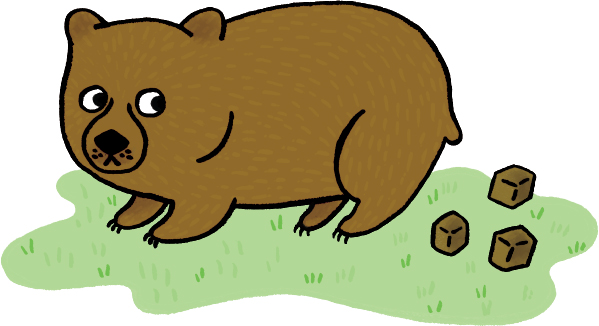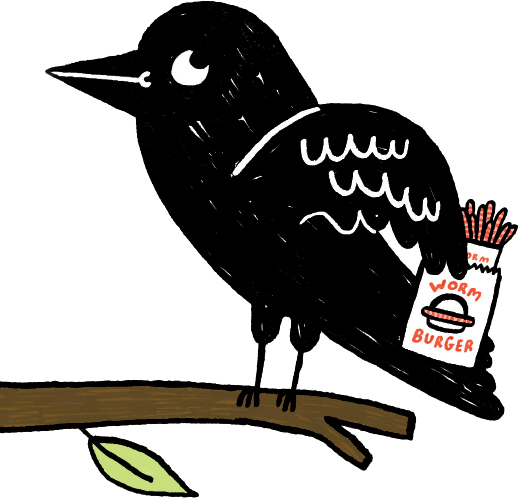Contents
Guide
FOR ALL MY WISE JELLYFISH:
My parents and brother,
Kinnari, Sanjeev, and Rohan
My grandparents,
Vasanti, Vimla, Surendra,
and Hasmukh
My favorite, Utsav
I am so glad that teaching me
how to read turned out to be useful.
Contents
Today is a wonderful day! Its the day you woke up and thought to yourself, Man, I wish I knew what an axolotl was and what it could teach me about self-care. If this was the first thing that popped into your head today, then yes, I am a powerful psychic. But if not, and youve never heard of an axolotl, dont sweat it. Im here to teach you all about how this adorable little creature and an array of other plant and animal friends can improve your life. Hang on tight! Youre in for quite the adventure.
Hiking, safari, deep-sea diving, casually walking on the moonthe numerous ways that humans have come up with for exploring our planet and interacting with her inhabitants are mind-bogglingly impressive. But exploring the natural world isnt reserved for the adventurous and wealthy. Exploration is meant for anyone who is curious. The notably curious of history have included the famous Greek philosopher Thales, who by observing the stars successfully predicted the timing of the first solar eclipse, and my personal favorite, household name Charles Darwin, who developed our modern theory of evolution by studying animals on the Galpagos Islands. As a non-notable person who is curious about nature, I once tried to mimic bird calls to elicit a reaction from the local flock, but only succeeded in scaring away small children.
Our humble abode, planet earth, is an astonishing thing. For four and a half billion years, the planet has been creating intricate communities known as ecosystems, each consisting of thousands, if not millions, of different plants and animals. And each of these plants and animals has evolved its own unique set of traits and behaviors in order to live, thrive, and reproduce. Whether were talking about a flower using its brightly colored petals to attract insects for pollination or a cat using its fantastic night vision to capture prey in low light, plants and animals are able to exist and thrive only if they have adapted traits and behaviors that prioritize their well-being.
How does this relate to self-care? Defined by the Oxford English Dictionary as the practice of taking an active role in protecting ones own well-being and happiness, self-care is something that creatures in the wild have been putting into practice since the very beginning. For plants and animals in the wild, self-care, in its most basic sense, begins with avoiding predators and successfully sourcing food to stay alive. These guys are regularly faced with pressing questions like Will I get killed today? and Will I eat today? So the meaning of thrive is very different for a creature in the wild than it is for us modern humans.
Most of us arent hunting or cultivating our own food, let alone fleeing from predators. For humans, seemingly nothing should stand in the way of our well-being. And yet so many of us are plagued by anxiety, stress, and unhappiness. While we may not be worried about physical predators lurking in the bush waiting to eat us, the lives we lead and the environments we live in do cause us stress. Take modern technology, for example. Although technology has led to many advances that benefit our health, significant negative health effects are also associated with our attachment to our computers and smart-phones. Many of us are socially isolated behind our screens, where we are also more sedentary than at any other time in human history, and we work long hours and face high levels of stress in our workplaces. The United States is one of the most overworked countries in the world. According to a study in the medical journal The Lancet, American workers, compared with workers in other countries, including those in East Asia and across Europe, are not only among the most stressed but also at a significantly higher risk of developing heart disease.
So our obsession with social media and our jobs may be killing us. Fun. Is there anything we can do about it? Before you panic, lets take a closer look at modern understandings of self-care, which do not require avoiding technology completely or going off to live on a mountaintop. The reality is that unless youve hit the Megamillions jackpot or got into Bitcoin as an early adopter, you have to go to workwhere you eventually need to interact with a smartphone or a computer in some form. Self-care, in the modern sense, is all about balance. It involves more than throwing on a face mask or inhaling some essential oils. In a broader sense, self-care is about prioritizing your mental, physical, and emotional well-beingwhether that means getting more sleep, exercising regularly, or dressing up and feeling fancy for no reason.
Self-care is ultimately about making sure you remember to always be kind to yourself.
Though suddenly trendy, self-care is an age-old concept. Eastern medicine has embraced it for centuries, taking a preventative approach to mental and physical health rather than just treating disease. From social media influencers promoting the latest wellness fads to expensive retail therapy being branded as self-care, we hear this term thrown around a lot and misused, and this can be confusing. Spending tons of money or avoiding social engagements is not what self-care is about. Truly understanding what self-care consists of can help us shake off any hesitations we might have when it comes to putting ourselves first and devoting time to our goals without feeling guilty. Self-care is not selfishits about progressing toward a better version of ourselves, both mentally and physically, so that we can achieve our long-term goals, nurture important relationships, and live life to its fullest potential.
To survive and thrive through multiple generations, all living organisms must possess one essential trait: the ability to properly care for themselves. In the wild, self-care can be particularly dramatic and colorful. For instance:
- OCTOPUSES have evolved to camouflage underwater to escape predators and capture prey.
- TURTLES have evolved a tough shell to compensate for being such a slow and easy target for predators.
- CHEETAHS have evolved to become predators of ungodly speed.
Life only flourishes when creatures of all shapes and sizes can successfully engage in self-care. For us humans, the stresses of modern life can make our defense systems feel paper-thin. Its time to get back to the basics and look to the animals and plants in the wonderfully wild world around us for some valuable lessons on how to combat stress, anxiety, and potential burnout.
Next page
